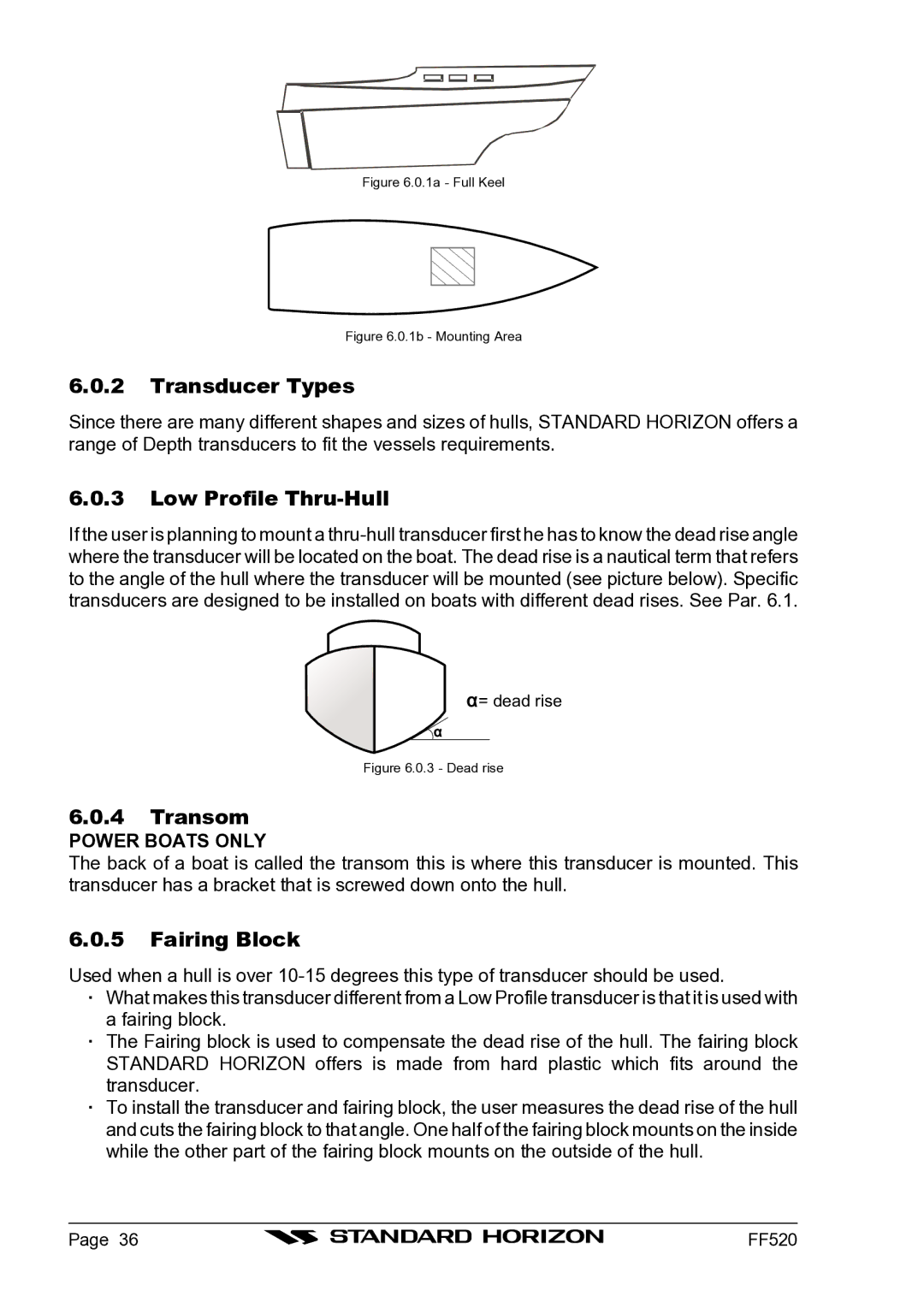
Figure 6.0.1a - Full Keel
Figure 6.0.1b - Mounting Area
6.0.2Transducer Types
Since there are many different shapes and sizes of hulls, STANDARD HORIZON offers a range of Depth transducers to fit the vessels requirements.
6.0.3Low Profile Thru-Hull
If the user is planning to mount a
![]() = dead rise
= dead rise
Figure 6.0.3 - Dead rise
6.0.4Transom
POWER BOATS ONLY
The back of a boat is called the transom this is where this transducer is mounted. This transducer has a bracket that is screwed down onto the hull.
6.0.5Fairing Block
Used when a hull is over
·What makes this transducer different from a Low Profile transducer is that it is used with a fairing block.
·The Fairing block is used to compensate the dead rise of the hull. The fairing block STANDARD HORIZON offers is made from hard plastic which fits around the transducer.
·To install the transducer and fairing block, the user measures the dead rise of the hull and cuts the fairing block to that angle. One half of the fairing block mounts on the inside while the other part of the fairing block mounts on the outside of the hull.
Page 36 |
| FF520 |
|
